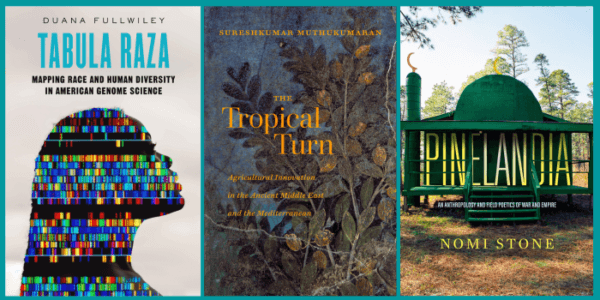"Through the sources carefully collected and organized in On Minimalism, O’Brien and Robin present a rich tapestry of the musical movement, which can be appreciated by novices, students, instructors, and experts alike and will serve as mandatory reading for minimalist scholars moving forward as we continue to explore the stories that minimalism can tell."
— Notes: the Quarterly Journal of the Music Library Association
"A special book in which we get a wonderful insight into the history of this movement. . . . Beautiful and instructive."
— Nieuwe Noten
"You might come to this book for Reich, Glass and Riley, but it’s definitely worth staying for O’Brien and Robin’s inspiring accounts of musicians, many not achieving anything like mainstream success, who delight in keeping the minimalist instinct pure. . . . Everything you could want to know about minimalism—from its pre-history to its pioneering go-getters piecing together a music that had yet to solidify into a genre—is surveyed and assessed."
— Prospect Magazine
"For anyone interested in the quirks and turns taken by postwar music in the twentieth century, it wasn't so much a big bang/bhang as it was a collective hummmmmm. Was it somehow a reaction to the absolute bleak blankness of the atom bomb? Was it gazing East to find a spiritual purity and stillness? Was the paring away of harmony and motion a reaction to the ever more complex complications of the modern world? Whatever it was, musicians from all sorts of wide-ranging backgrounds, jazz players, contemporary composers, inventors, scientists, tricksters and seekers, men and women (not to mention filmmakers, dancers, painters, writers) were seeking new forms and demanding that new experiences be brought forth from their compositions, seeking a suspension of time, an expanding NOW—like a river, ever changing yet ever the same. They were seeking to quiet the madness of modern life and refocus the thought process, to examine one single flower rather than the field, to strike one single note and understand how it related to the many, to turn off their minds and float downstream. On Minimalism is the story of this music, from its brave beginnings through to underpinning so much of what we listen to today. Turn the pages and witness this revelatory process unfold in a myriad of inventions and directions. Boom went the bomb and hummmmmm came the revolutionary response."—Lee Ranaldo, founding member of Sonic Youth
"Kerry O'Brien and William Robin's riveting documentary collection clears away myths of minimalist history without minimizing the significance of the movement. Indeed, minimalism emerges as a wider, deeper, more inclusive, and more radical phenomenon than we had known."—Alex Ross, music critic for The New Yorker and author of Wagnerism: Art and Politics in the Shadow of Music
"On Minimalism is a brilliant work of research and most addictive to read. Music is a practical art, so it is a delight to dig into the specific details of how these most influential musicians worked with their materials and with one another—conveyed in their own words, not retrospectively but in the moment. The breadth of perspective and structural clarity with which these rich sources are presented is refreshing, the connections illuminating."—Annea Lockwood, composer
"A wild collection of documents formed around a more dimensional and pleasingly meandering conception of 'minimalism' than we'd been told about. There's something in here for anyone with a sensitive ear, anyone seeking creative inspiration and a glimpse into how artists have zoomed-deep-in to their sound sources, producing fruitful collectives of generative energy that radiate from the past to the future, giving rise to ever new ones."—Julia Holter, singer-songwriter and producer
"With this wide-ranging collection of original texts by familiar and lesser-known key figures, O'Brien and Robin present a richer, more inclusive view of what we have come to define as 'minimalism' in music of the last century—a deep well of sounds and ideas from which younger generations of musicians and listeners (myself included) continue to draw inspiration."—Tashi Wada, composer and founder of the label Saltern
"A tremendous success. O'Brien and Robin bring a freshness and vitality to even the most familiar material, while centering lesser-known figures pushed to the margins of existing scholarship. On Minimalism will delight general readers and scholars alike with fresh perspectives on experimental and mainstream musics of the past sixty years."—Sarah Hill, author of San Francisco and the Long 60s
"Outstanding. A major contribution to music studies that will be used and referenced for years to come. Never has there been such an expansive yet incisive collection of texts on this topic."—Benjamin Piekut, author of Henry Cow: The World Is a Problem


